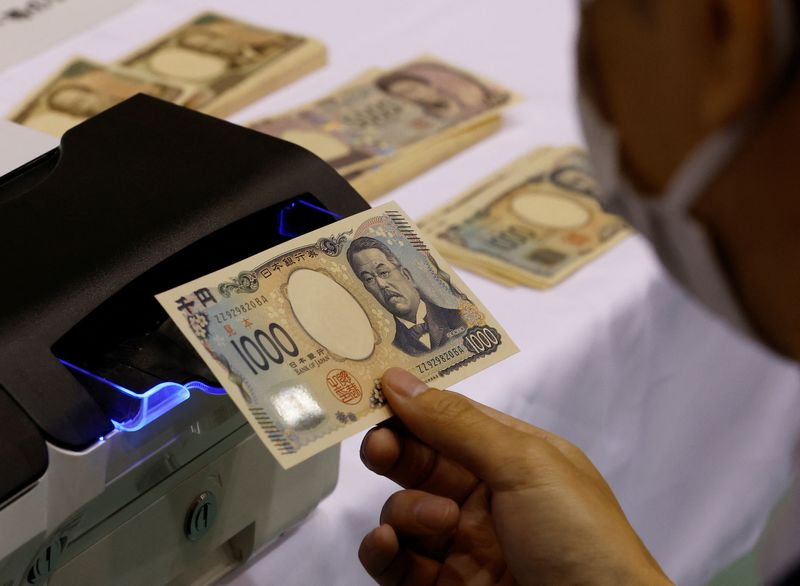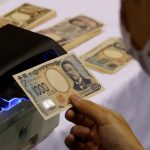TOKYO (Reuters) -Japan continued its jawboning on Thursday to stave off further yen declines, with the government’s top spokesperson renewing a warning that Tokyo would not rule out any options to counter excessive currency moves.
Chief Cabinet Secretary Yoshimasa Hayashi did not specify whether the options included yen-buying intervention, saying only that authorities were “watching currency moves with a high sense of urgency.”
“If there are excessive moves, we’d like to respond appropriately and won’t rule out any options,” Hayashi told a regular news conference.
His remarks echoed those made by Japan’s top currency diplomat Masato Kanda on Wednesday that authorities would not rule out any steps to counter disorderly currency moves.
The yen fell to a 34-year low against the dollar on Wednesday on expectations that the Bank of Japan (BOJ) will go slow in raising interest rates, thereby maintaining the huge gap between Japanese and U.S. interest rates.
The dollar briefly hit 151.975 yen on Wednesday, exceeding the 151.94 level at which Japanese authorities stepped in during October 2022 to buy the currency. It lost some ground to stand at 151.370 yen on Thursday.
The yen’s sharp declines come despite the BOJ’s decision last week to end eight years of negative interest rates, as traders focused more on its dovish message suggesting that another rate hike will be some time off.
Upon ending negative rates, many BOJ policymakers saw the need to go slow in phasing out ultra-loose monetary policy, a summary of opinions at last week’s meeting showed on Thursday.
“With the yen weakening to a fresh 34-year low against the dollar, the Ministry of Finance signaled that an intervention in the foreign exchange markets is imminent,” said Marcel Thieliant, head of Asia-Pacific at Capital Economics.
“However, the yen will certainly not get much support from Japan’s monetary policymakers as inflation is more likely to undershoot than to overshoot the Bank of Japan’s forecasts.”
Data due out on Friday is likely to show annual core inflation in Japan’s capital, which is considered a leading indicator of nationwide trends, slowed to 2.4% in March after a 2.5% gain in February, according to a Reuters poll.

Japanese policymakers have historically favoured a weak yen as it helps boost profits at the country’s big manufacturers.
But the yen’s sharp declines have recently added to headaches for Tokyo by inflating the cost of raw material imports, hurting consumption and retail profits.
To read the full article, Click Here

